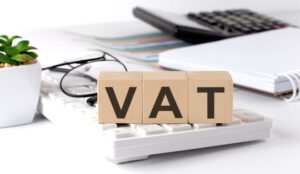
Tax Compliance: Why It Matters More Than You Think
Running a business is exciting, but dealing with taxes can feel overwhelming. Many companies face penalties simply because they miss key tax compliance rules. This
Address: Office No.1 Industrial Aera No.3 Buldia Building, Sharjah, United Arab Emirates
E-Mail: mhtaxationllc@gmail.com

Running a business in the UAE? You’ve likely heard more about CT – Corporate Tax recently. And for good reason. The UAE introduced this tax to regulate business profits, and ignoring it can cost you both money and credibility.
The good news is that with the right knowledge and systems, managing Corporate Tax UAE doesn’t have to be complex. Many companies rely on a tax consultant in Dubai or specialized advisors to stay compliant.
This guide explains what corporate tax is, why it matters, how it works in the UAE, and which tools can help you stay compliant. Whether you run a small business or a large enterprise, understanding Corporate Tax can protect your profits and strengthen your reputation.
Corporate Tax is a federal tax on business profits in the UAE. It came into effect on 1 June 2023 with a standard rate of 9% applied to taxable profits above AED 375,000.
This tax is not on revenue or sales. It applies only to net profit after allowable expenses. If your annual profit is below AED 375,000, you pay nothing.
The purpose of Corporate Tax UAE is to:
Align with international tax standards.
Prevent profit shifting and tax evasion.
Diversify government income beyond oil.
Note: Free zone businesses may still enjoy tax benefits under specific conditions but must register and file returns. A trusted tax advisor Dubai can guide free zone companies on eligibility.
Understanding the structure of Corporate Tax UAE helps businesses avoid penalties. Many businesses choose corporate tax services in Dubai to simplify this process.
0%: For taxable profits up to AED 375,000
9%: For taxable profits above AED 375,000
OECD Pillar Two rules may apply to large multinational companies
Applies to all UAE businesses (Mainland and Free Zones)
Freelancers and sole proprietors may be liable if profits exceed AED 375,000
Does not apply to salaries or personal investment income
Every business must register, even if income is below the threshold
Registration is through the Emara Tax portal of the UAE Federal Tax Authority
Annual filing required
Returns must be submitted within 9 months of the financial year end
Only costs directly related to business operations are deductible
Examples: salaries, rent, office supplies, utilities
A proactive approach to Corporate Tax UAE ensures compliance and boosts growth.
Avoid penalties (up to AED 10,000 for late registration), legal issues, and audits. Reliable corporate tax services in UAE help businesses stay compliant.
Knowing taxable income allows accurate budgeting, cash flow forecasting, and planning for tax liabilities.
Boosts credibility with stakeholders, attracts investors, and aligns with global financial norms.
The 0% threshold for profits under AED 375,000 supports small enterprises, encouraging growth and proper documentation.
| Misconception | Reality |
|---|---|
| CT is charged on revenue | CT applies only to net profit |
| Free zone companies are exempt | Only qualified entities may be exempt |
| CT must be paid monthly | CT is filed annually |
| CT applies to salaried individuals | Salaries are not subject to CT |
| VAT and CT are the same | VAT is a consumption tax; CT is a profit tax |
Manual tax management is risky. Automated tools help with compliance and accuracy. For advanced support, businesses often pair these systems with guidance from a tax consultant in Dubai.
Zoho Books (UAE Edition) – FTA integration, auto-tax calculation, real-time tracking
TallyPrime – Localized for UAE CT, return filing, forecasting
QuickBooks Online – Custom tax categories, income/expense tracking for SMEs
Sage Accounting – Cloud-based reporting, suitable for larger businesses
Xero (UAE Integration) – Simple interface, CT-specific reports, real-time insights
Tip: Choose tools based on your business size and complexity. Automation reduces errors and saves time.
If you operate in the UAE, here are the immediate steps to take:
Check your profit level – Are you above or below AED 375,000?
Register with the FTA – Avoid penalties for late registration.
Choose an accounting system – Ensure it supports UAE CT requirements.
Track all expenses – Essential for deductions.
Consult a professional – A tax advisor Dubai can provide expert guidance, reduce risks, and save you money.
The introduction of Corporate Tax UAE marks a new era of compliance and financial transparency. It’s not just about paying tax—it’s about creating a long-term, trustworthy business model.
By learning the system, using the right tools, and working with corporate tax services in Dubai, your business can avoid penalties and build stronger credibility in the UAE market.

Running a business is exciting, but dealing with taxes can feel overwhelming. Many companies face penalties simply because they miss key tax compliance rules. This

Running a business in the UAE comes with opportunities, but also responsibilities. One major concern for business owners is staying compliant with Corporate Tax Registration

Running a business in the UAE means meeting legal tax obligations. Yet, many companies struggle with VAT Registration & Return Filing due to unclear rules